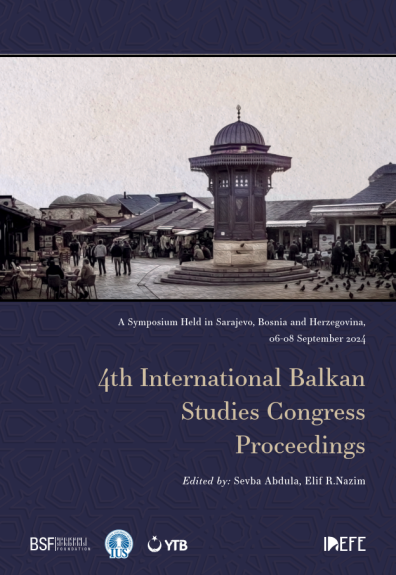Proceedings
Türkiye- Bosna-Hersek İlişkilerinin Akıllı Güç Perspektifinde Analizi
Authors
-
Erdem ErenDr., İstanbul Rumeli University
Synopsis
It seems that the relations between Türkiye and Bosnia-Herzegovina are largely based on clichéd rhetoric, such as the legacy of the Ottoman State, the concept of a trust state, shared religion, and brotherly ties, as well as the me-mory of the Srebrenica genocide. As a matter of fact, academic studies and poli-tical discourses in interstate relations are also built on these rhetorics. When the relations between Türkiye and Bosnia-Herzegovina are examined, it is known that there are deep relations between the two countries in many fields such as politics, economy, education, culture, defense industry and public diplomacy. In addition, it is understood that historical, political, biological and cultural ties are effective in the history and present of relations between the two countries. In this research, Türkiye’s Bosnia-Herzegovina policy was analyzed within the scope of smart power, which expresses a logical combination of hard and soft power. Ad-ditionally, the impact of stereotypical rhetoric on the relations between the two countries was examined. In the research, answers were sought to questions such as whether stereotyped rhetoric has a negative impact on Türkiye’s Bosnia-Her-zegovina policy and whether Türkiye’s policy is based on smart power methods. Methods such as literature review, discourse analysis and statistical data were used in the research. The research concluded that stereotyped rhetoric limits the holistic and inclusive structure of Türkiye’s Bosnia-Herzegovina policy and narrows Türkiye’s influence on the three founding nations in Bosnia-Herzegovi-na. In addition, it has been determined that Türkiye’s Bosnia-Herzegovina policy largely meets the headings of effective communication techniques in diplomacy, public diplomacy approach, economic integration, technology and innovation, among the 10 basic methods of smart power. However, Türkiye is yet to success-fully implement methods such as the international alliance/partnership model, geographical-ethnic and religious inclusion, the use of trained public diploma-cy experts, global development strategy, cooperation between state-private se-ctor-non-governmental organizations, and feasibility report. It was concluded that he could not demonstrate competence.
Copyright
Copyright (c) 2025 Idefe Publications
License

This work is licensed under a Creative Commons Attribution-NonCommercial 4.0 International License.
Downloads
Publication Information
-
Publication TypeChapter
-
Volume
-
Pages183-204
-
PublishedJune 7, 2025
-
Series
-
Series PositionProceedings 04
Abdula, S. (Ed.). (2025). Türkiye- Bosna-Hersek İlişkilerinin Akıllı Güç Perspektifinde Analizi. In 4th International Balkan Studies Congress Proceedings: Vol. Proceedings 04 (pp. 183-204). Idefe Publications. https://doi.org/10.5331/
